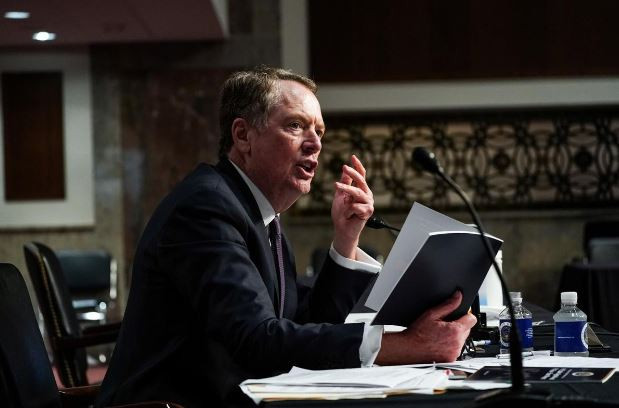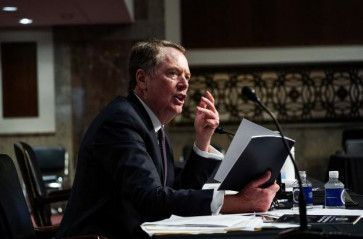Popular Reads
Top Results
Can't find what you're looking for?
View all search resultsPopular Reads
Top Results
Can't find what you're looking for?
View all search resultsTrade without aid: Will it work for Indonesia?
The new status may pose certain challenges in the form of reduced international assistance and support, including the eligibility to benefit from special and differential treatment.
Change text size
Gift Premium Articles
to Anyone
T
rade is a powerful engine for economic growth and poverty reduction, but harnessing its power may be difficult for developing and least-developed countries. Most of them face a range of supply-side and trade-related constraints that hinder their ability to engage and compete effectively in international trade.
To address this issue, the World Trade Organization (WTO) launched the Aid-for-Trade initiative in 2005 to assist developing and least-developed countries to maximize the benefits from trade opportunities, and integrate into the multilateral trading system. In general, most of Aid-for-Trade is disbursed bilaterally by donors, or through multilateral and regional finance and development organizations such as the World Bank.
Indonesia’s new income status has the potential to affect the country’s eligibility to receive trade aid and preferential treatment. On July 1, 2020, the World Bank upgraded Indonesia’s economic status from a lower-middle-income to an upper-middle-income economy, a step further toward reaching the high-income category.
The new status was conferred based on the country’s increased gross national income (GNI) per capita, which rose from US$3,840 in 2018 to $4,050 (the lowest rung in that category) in 2019. GNI as the sole benchmark of the World Bank’s income classification refers to all the income earned by a country's residents, businesses and earnings. It represents the value produced by a country’s economy in a given year, regardless of the source of the value.
The World Bank’s income groups consist of the following classifications: (1) Low-income economies (a GNI per capita below $1,035), (2) lower middle-income (a GNI per capita between $1,036 and $4,045), (3) upper middle-income economies (a GNI per capita between $4,046 and $12,535) and (4) high-income economies (a GNI per capita of $12,536 or above).
The upper-middle income status is expected to further strengthen investors’ and trading partners’ perception of Indonesia’s economic security and investment climate. However, the new status may pose certain challenges in the form of reduced international assistance and support, including the eligibility to benefit from special and differential treatment. In fact, the upgraded status is likely to lead to the termination of certain trade benefits such as preferential tariff reductions provided under the Generalized System of Preference (GSP) program.
The GSP is a system whereby developed or high-income countries offer non-reciprocal preferential treatment for products originating in developing or least-developed countries. Such developed or high-income countries will unilaterally determine the eligible beneficiaries and products to be included in their schemes. Under the WTO rules, the preferential treatment provided under a GSP scheme is justified under the Enabling Clause, officially called the Decision on Differential and More Favorable Treatment, Reciprocity and Fuller Participation of Developing Countries.


















